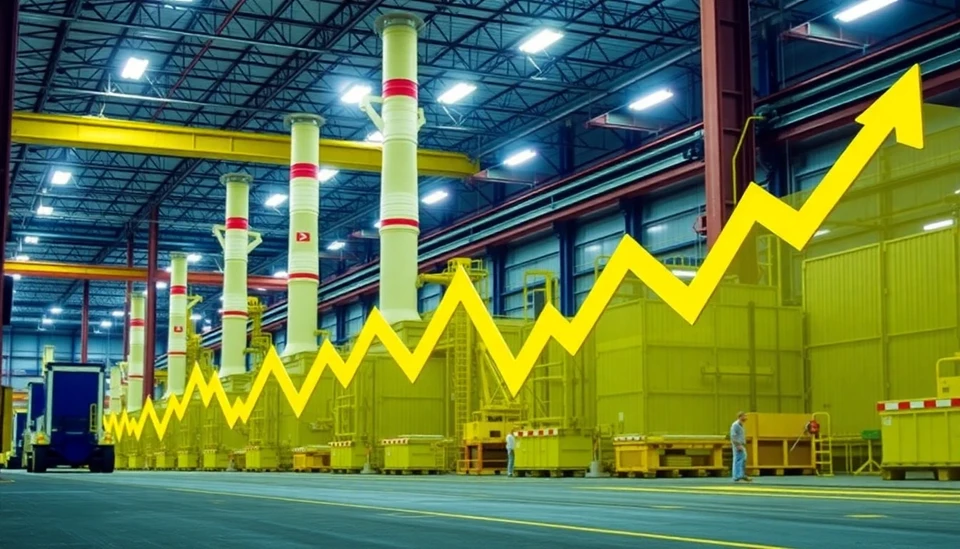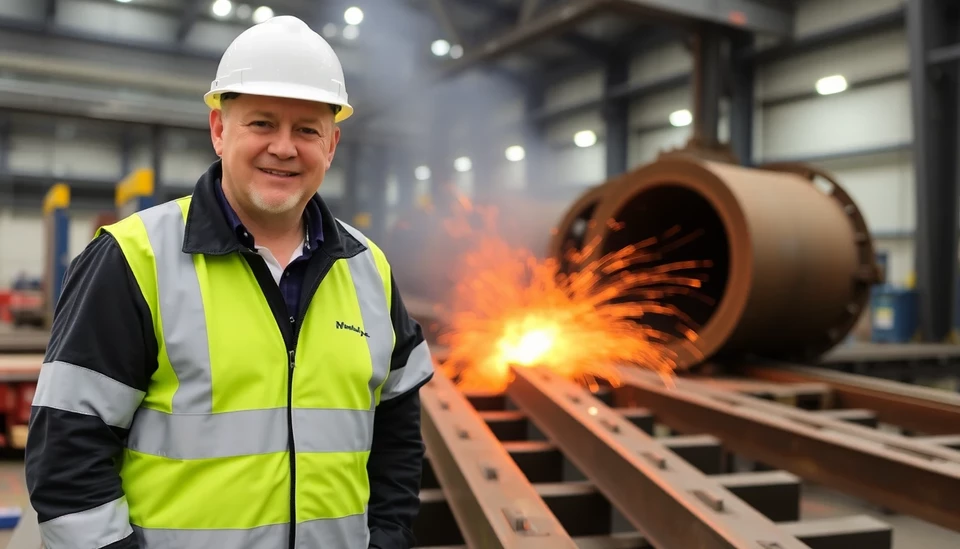
In a striking turn of economic events, UK factory exports have experienced a significant decline as businesses brace themselves for the impending tariffs set to be imposed by former President Donald Trump on certain goods. This downturn comes as a shock to many, as the UK manufacturing sector has struggled with both domestic challenges and international competition over the past few years.
According to data released from the Office for National Statistics (ONS), the volume of goods exported from UK factories fell sharply, marking one of the most considerable drops witnessed in the industry. Analysts suggest that this decrease is not merely a seasonal fluctuation, but rather a clear indication of the mounting pressures faced by exporters ahead of the expected tariff changes.
The looming tariffs, part of the United States’ trade strategy under Trump, threaten to impact sectors that are vital to the UK economy, including automotive, aerospace, and machinery. Industry leaders have expressed their concerns over the punitive measures, which could further complicate an already fragile recovery in UK manufacturing, which had just begun to show signs of resilience after the pandemic's economic toll.
Exporters are now faced with an urgent need to reassess their business strategies. Many are considering diversifying their markets to counterbalance the potential losses they may incur as American consumers turn to local suppliers due to increased costs for imported goods. Experts point out that the tariffs may not only raise prices for consumers but could also push UK companies to rethink their presence in the US market entirely.
In the wake of these developments, numerous trade associations have rallied to provide advice and support to manufacturers eager to adapt. The British Chambers of Commerce has emphasized the importance of resilience and innovation as coping mechanisms to navigate these choppy waters. Furthermore, they urge government action to negotiate terms that might mitigate the harsh impact of the tariffs.
As the UK prepares for these new economic realities, the manufacturing sector will need to foster agility and creativity to withstand the changes ahead. Observers are closely monitoring how companies respond both in the short term and long term to these tariff challenges, as it could define the future trajectory of UK manufacturing on the global stage.
The impending tariffs are more than just a policy measure; they represent a broader conversation about global trade dynamics, the rise of protectionist sentiments, and the resilience of nations like the UK in facing such formidable challenges. As the clock ticks down to the implementation of these tariffs, the outcome for UK manufacturers remains uncertain, yet the need for strategic adaptation has never been more crucial.
With the stakes raised high, all eyes will be on the forthcoming months as UK exporters seek to navigate this tumultuous economic landscape infused with potential pitfalls and opportunities alike.
#UKManufacturing #FactoryExports #TrumpTariffs #TradeWar #Economy #UKExports #ManufacturingSector #GlobalTrade
Author: Daniel Foster


